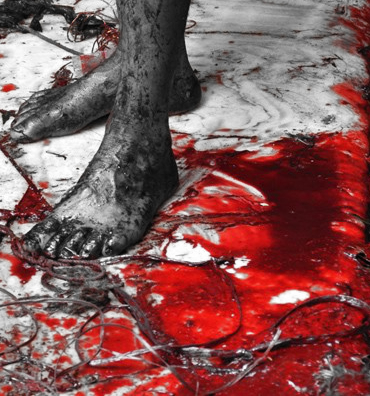Study shows sacrifice for power
 Experts say ritual human sacrifice may have been key to keeping power in ancient communities.
Experts say ritual human sacrifice may have been key to keeping power in ancient communities.
“Religion has traditionally been seen as a key driver of morality and cooperation, but our study finds religious rituals also had a more sinister role in the evolution of modern societies,” says Joseph Watts, a researcher at the University of Auckland.
Watts led a recent study to test the link between how unequal or hierarchical a culture is – called social stratification – and human sacrifice.
The team used computational methods lifted from the world of evolutionary biology to analyse historical data from 93 ‘Austronesian’ cultures.
They found that the practice of human sacrifice was widespread throughout Austronesia: 40 out of 93 cultures included in the study practised some form of ritualistic human killing.
The population in the area is thought to have originated in Taiwan and, as they moved south, eventually settled almost half the globe, spreading west to Madagascar, east to Rapa Nui (Easter Island) and south to the Pacific Islands and New Zealand.
Records show methods of ritual human sacrifice in these cultures included burning, drowning, strangulation, bludgeoning, burial, being cut to pieces, crushed beneath a newly-built canoe, being rolled off the roof of a house or being decapitated.
Victims were typically of low social status, such as slaves, while instigators were usually of high social status, such as priests and chiefs.
The study divided the 93 different cultures into three main groups; high, moderate or low social stratification.
It found cultures with the highest level of stratification were most likely to practice human sacrifice (67 per cent, or 18 out of 27).
Of cultures with moderate stratification, 37 per cent used human sacrifice (17 out of 46) and the most egalitarian societies were least likely to practice human sacrifice (25 per cent, or five out of 20).
“By using human sacrifice to punish taboo violations, demoralise the underclass and instil fear of social elites, power elites were able to maintain and build social control,” Mr Watts says.
Human sacrifice also provided an excellent means of social control, by appearing as a supernatural justification for punishment. In a time when rulers such as priests and chiefs were often believed to be descended from gods, ritual human sacrifice was the ultimate demonstration of their power.
The team says its use of computational evolutionary methods enabled them to reconstruct the sequence of changes in human sacrifice and social status, so they could test whether sacrifice preceded or followed changes in social status.







 Print
Print